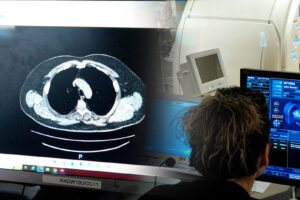IBBR and Frederick National Lab Establish a Human Papillomavirus (HPV) Vaccine Development Collaboration
Published 11/8/17 on newKerala.com
ROCKVILLE, Md: University of Maryland’s Institute for Bioscience and Biotechnology Research (IBBR) will work under a formal collaboration with the Frederick National Laboratory for Cancer Research (operated by Leidos Biomedical Research, Inc.) to explore new candidate vaccines against human papillomavirus (HPV), a common cause of cervical cancer.
The Frederick National Lab is sponsored by the National Cancer Institute (NCI) and operated by Leidos Biomedical Research, Inc., signor of the collaboration agreement.
IBBR Research Fellow Dr. Alexander Andrianov and the Frederick National Lab’s Dr. Jason Marshall, will explore the ability of polyphosphazene immunoadjuvants to enhance the stability and immunogenicity of new vaccine candidates against HPV – the most common sexually transmitted infection in the United States and one of the causes of cervical cancer. The aim is to create a more robust vaccine and reduce the number of vaccinations required for protection.
Polyphosphazene immunoadjuvants, clinical-stage vaccine delivery macromolecules, are under development at IBBR to enhance and improve immune responses induced by vaccines. Polyphosphazenes are biodegradable synthetic macromolecules with potent immunostimulatory properties. They are also efficient in prolonging vaccine shelf-life and capable of reducing the dose of the antigenic protein needed for protective immune response.
The polyphosphazene platform technology was initially seeded with funds from the University of Maryland Strategic Partnership: MPowering the State, a structured collaboration between the University of Maryland College Park (UMCP) and the University of Maryland, Baltimore (UMB). It is designed to expand research collaborations, promote innovation and impact, and leverage research strengths across the campuses to develop novel, multidisciplinary solutions to major unmet medical and public health needs. IBBR and UMB researchers have been exploring development of the polyphosphazene technology as a potential combination immunoadjuvant platform.
“Industry and government collaborations with partners like this allow us to further expand our engagement in novel vaccine development and macromolecular drug delivery,” said Dr. Thomas Fuerst, IBBR Director. “We also want to acknowledge MPower for their continued support to the Institute and its translational mission.”



